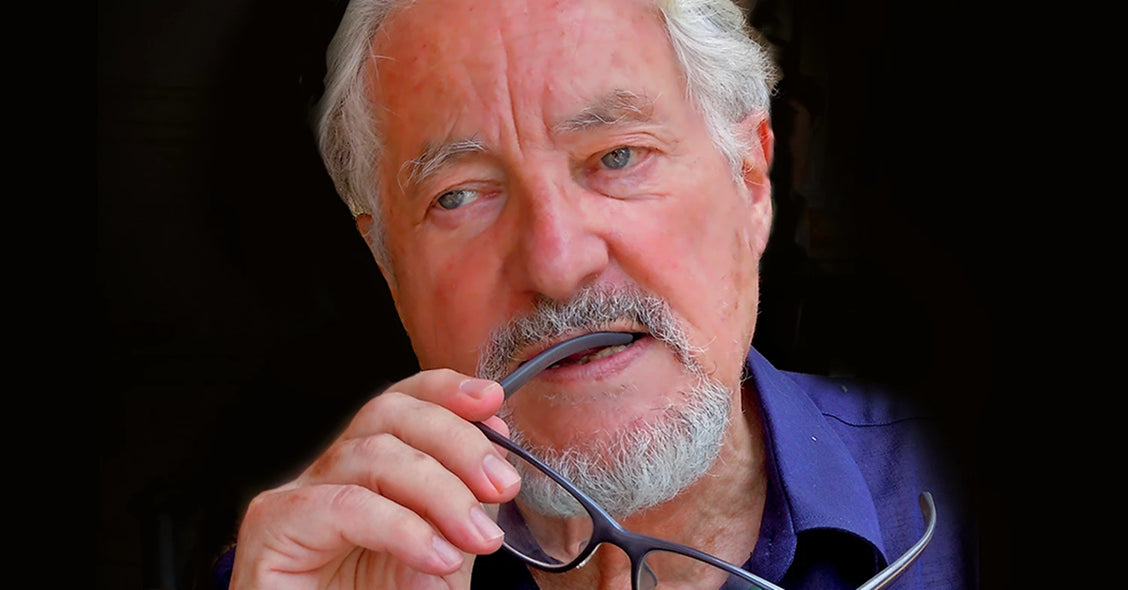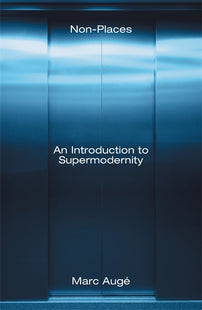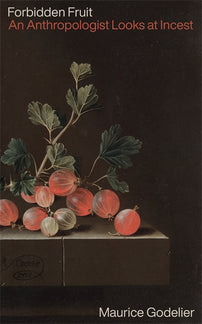Marc Augé, anthropologist of contemporary ‘non-places’
French anthropologist Marc Augé died on 24 July, leaving behind an important legacy.

This article was originally published on 26 July 2023 by Le Monde.
Power, witchcraft, rituals, places, the city, the excesses of modernity, identity and oblivion, but also the Jardin du Luxembourg, tourism and the Paris métro – these were just some of the themes Marc Augé tackled as an anthropologist and writer, breaking down the barriers between the human sciences to better observe the contemporary world. In the words of the anthropologist Michel Agier, ‘he took ethnology out of the realm of detailed monographs and historicised the societies he studied. He also led the discipline into new fields: the city, new religions, theatres of war.’
Both Africanist and ethnologist of industrialised societies, president of the École des hautes études en sciences sociales (EHESS) from 1985 to 1995, an author of international stature whose influence was particularly felt in Italy, Marc Augé died in Paris on 24 July at the age of 87. He had been suffering for several years from Parkinson’s disease. He practised a free and fertile anthropology to think about an era he considered unprecedented, marked by the acceleration of time and the disappearance of alterity as a result of globalisation.
Born in 1935 in Poitiers, Augé grew up in the 5th arrondissement of Paris with his father, a civil servant, and his mother, a housewife. He attended the Lycée Montaigne, then Lycée Louis-le-Grand, before joining the École Normale Supérieure. At Rue d’Ulm, he attended the seminars of the ethnologist and sociologist Georges Balandier (1920-2016), a keen observer of emancipation movements in Africa who often crossed swords with Claude Lévi-Strauss. Balandier would supervise Augé’s doctoral thesis, but Augé refused to choose between the two ethnologists, preferring to draw inspiration from both.
After his first contact with Africa in 1961-62 when he did his military service in Algeria, joining a regiment charged with combating the OAS, Marc Augé became a teacher at the Lycée Paul-Valéry in Paris. Driven by a thirst for knowledge and a desire to discover the world, he renewed contact with Georges Balandier and obtained a secondment from the French education ministry to the Office de recherche scientifique et technique d’outre-mer in 1964. The following year, he left for the Ivory Coast. There he carried out research on the Alladian, an ethnic group living not far from Abidjan. This would form the subject of his doctorate, which he obtained in 1967. He investigated kinship structures, age groups and witchcraft, a phenomenon he would continue to study over the following decade. Far from the myth of the ‘good savage’ that might be associated with this type of African community, his aim was to show that witchcraft manifested itself as a repressive system revealing formidable power relationships. ‘All societies are repressive,’ he noted in Pouvoirs de vie, pouvoirs de mort (1977).
[book-strip index="1"]
Joie de vivre
It was also through witchcraft that Augé saw the transformation of the African value system under the pressures of colonisation, Christianity, and Western technologies. Africa, which unlike Europe had not experienced the earlier developments of modernity, was suddenly faced with profound changes. Sorcerers clashed with prophets, major figures in Ivorian history who claimed to have borrowed from the power of the Whites to fight against them. In a space being redefined, the prophet finds himself on the border between worlds – a position that Marc Augé would make his own.
But the seriousness of the research he undertook did not prevent the expression of a personality marked by joie de vivre. Jean-Pierre Dozon, who was his student before becoming his friend and colleague, remembers a man ‘who sang in his car, as we travelled from one prophet to another in Côte d’Ivoire. He was also an incredibly free writer, navigating between different currents and very attached to literature. Julien Gracq, Stendhal and Proust were all anthropologists in his eyes.’ It was in the early 1970s that Marc Augé met the ethnologist Françoise Héritier (1933-2017), with whom he remained married for twenty years,
After a number of widely acclaimed books, including Théorie des pouvoirs et idéologie (1975), he published his most influential work, Le Génie du paganisme (1982). Here he stressed the tolerance of polytheism, which is alien to Christian proselytism. He joined EHESS in 1976 and became its president in 1985. ‘After the departure of the founding fathers, a search for new blood,’ Frédéric Gaussen wrote about his appointment in Le Monde. In this offshoot of the Annales school, which had been directed by Lucien Febvre, Fernand Braudel, Jacques Le Goff and François Furet, this was the first time that the EHESS would be directed by a non-historian.
‘Anthropology of the close-at-hand’
The historian Romain Huret, who would also preside over the EHESS, emphasises the extent to which Marc Augé embodied ‘a generational change, opening up EHESS to other disciplines that did not occupy the same place as history, but also to other cultural areas beyond Europe. Without distancing himself from his own discipline, he always believed in the unity of the social sciences, each of which, with its own tools, can help us to understand society.’
At the head of such a prestigious institution, he still remained an active researcher. In the mid-1980s, Marc Augé entered his most productive years, undertaking an ‘anthropology of the close-at-hand’. In In the Metro (1986), he went underground to describe the interaction between the names of stations steeped in history and the memories that people accumulate on public transport. ‘In some places there is a kind of coincidence between intimate geology and history,’ he explained to Le Monde. From then on, his chosen domain would be this awkward encounter between the individual and the event. It was in this spirit that in 1992, along with Emmanuel Terray, Gérard Althabe and Jean Bazin, he founded the Centre d’anthropologie des mondes contemporains at the EHESS.
With the dawn of globalisation, Augé went on to analyse the grip on the individual of a boundless present full of incessant events, subject to images and brief signals devoid of meaning. In Non-Places (1992) he saw here the mark of a ‘super-modernity’, an excessive modernity in which time and space are shortened to the extreme, and individualism reigns. Alterity disappears as the exploration of the world comes to an end, and travel is now conducted by passing through ‘non-places’, spaces that are the same everywhere in the world, such as airports, car parks and hotels.
[book-strip index="2"]
Augé’s critique of modernity did not go as far as relativism or the questioning of the Enlightenment that is characteristic of postmodernism. ‘It is not true that any culture is as good as another, but neither is it true that modern Western culture is the finished model... nor that it has long been the embodiment of individual rights,’ he wrote in A Sense of the Other (1994).
Attentive to a world in the making, in a cross-fertilisation between the distant and the close-at-hand, Marc Augé made writing a major tool for the scholar, using a characteristic ‘tone’, a stylistic elegance, to recreate meaning. He also opted for fiction, notably to describe the fate of a homeless man in Journal d’un SDF. Ethnofiction (2011), or, in a different genre, Éloge du bistrot parisien (2015), celebrating a place rich in rituals.
In an age that presses us to retreat into ourselves, Augé’s work invites us to reject such confinement. Interviewed by Macha Séry in Le Monde in 2017, he said, ‘I believe that curiosity will win out.’
Translated by David Fernbach

